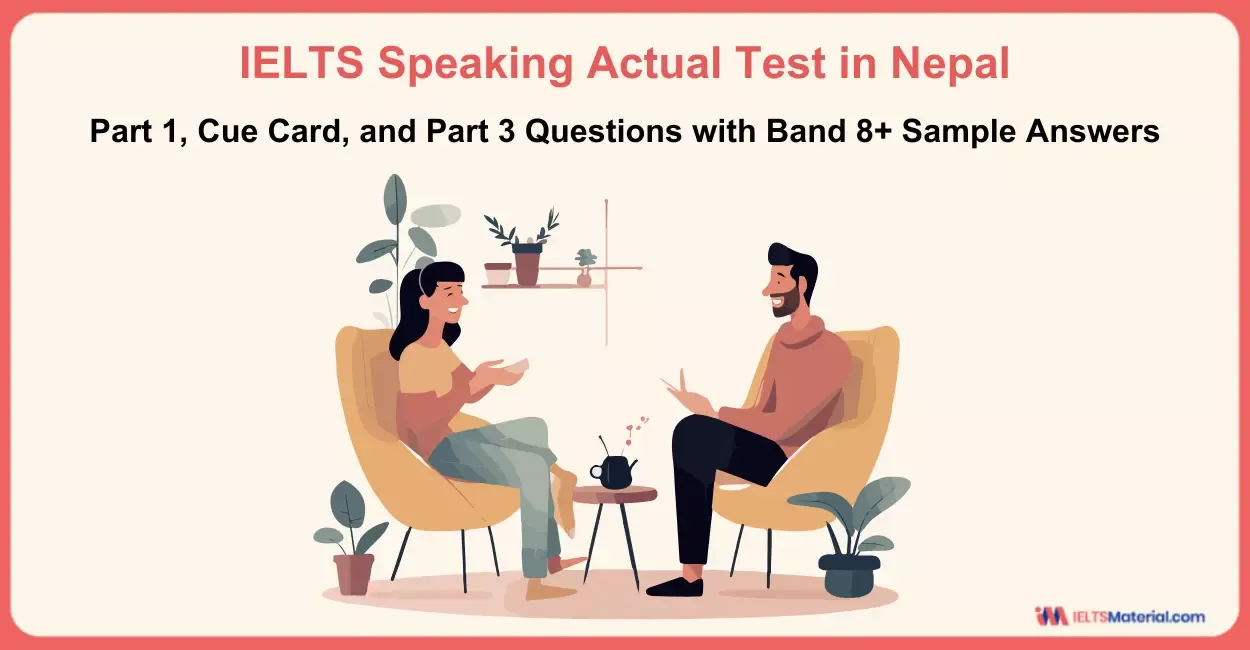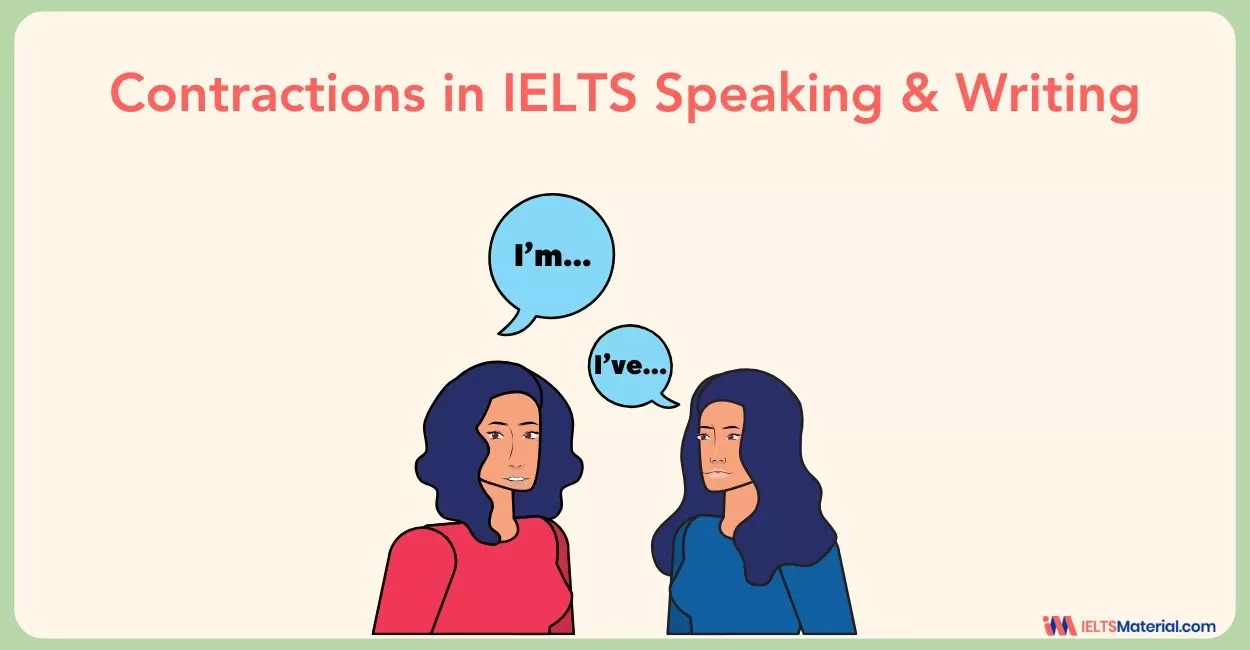What IELTS Examiners Look for in the Speaking Test?
8 min read
Updated On
-
Copy link
What IELTS examiners look for in the Speaking test are based on the four IELTS Speaking criteria. In this blog, learn about these IELTS Speaking band descriptors and tips on improving these areas to boost your IELTS score.
Table of Contents

Limited-Time Offer : Access a FREE 10-Day IELTS Study Plan!
Knowing the IELTS Speaking criteria makes it easy for aspirants to prepare for the exam and get a good score in the exam. It helps them understand what IELTS examiners look for in the speaking test and improve their skills accordingly.
So, in this blog, we will look into the IELTS Speaking band descriptors and go through some IELTS examiner tips for IELTS Speaking to boost the IELTS score.
IELTS Speaking Criteria: What IELTS Examiners Look for in the Speaking Test?
In IELTS Speaking Part 1, the examiner will ask the candidate some introductory questions like name, place of residence, reason for immigrating, etc. Similarly, in IELTS Speaking Part 3, they will ask some questions related to the topic of the IELTS cue cards in Part 2.
Overall, the candidates are assessed on the basis of 4 IELTS Speaking criteria - Fluency and coherence, Lexical resource, Grammatical range and accuracy and Pronunciation.

The Speaking results are presented as an IELTS band score, with a band 0 to a band 9 being the range. Every whole and half band score represents a proficiency level in the English language.
Let’s have a detailed look at what these IELTS Speaking band descriptors mean in the table below.
|
Band Level |
Fluency & Coherence |
Vocabulary |
Grammar |
Pronunciation |
|---|---|---|---|---|
|
9 |
|
|
|
|
|
8 |
|
|
|
|
|
7 |
|
|
|
|
|
6 |
|
|
|
|
|
5 |
|
|
|
|
|
4 |
|
|
|
|
|
3 |
|
|
|
|
|
2 |
|
|
|
|
|
1 |
No communication possible |
No communication possible |
No communication possible |
No communication possible |
Hop on our free IELTS webinars and get some insider tips to up your game!
Sample of What IELTS Examiners Look for in the Speaking Test
To make it easier to understand what IELTS examiners look for in the speaking test, the following examples for IELTS Speaking Part 2 will be quite helpful.
Candidates are advised to assess the samples on their own and check if they have understood the IELTS Speaking criteria properly by tallying their assessment with the IELTS examiner’s comments.
IELTS Cue Card Topic
Describe a new law you would like to see introduced.
- What it is?
- What it would change?
- How popular it would be?
- And explain why you think it's important?
Audio 1
Examiner’s Comments:
- Fluency and coherence
The response flows naturally and smoothly, with well-organized ideas. The candidate uses a range of cohesive devices, like ‘In other words’, ‘On top of that’, ‘All in all’, effectively to connect ideas and develop the response logically. He gets a good score for fluency.
- Lexical resource
The candidate uses a wide range of vocabulary, with appropriate idiomatic expressions like ‘kill two birds with one stone’ and ‘set the stage for’. Although the word choices are mostly to the point, it can be improved further. Overall, he scores well on vocabulary.
- Grammatical range and accuracy
He demonstrates a good range of grammatical structures, including conditional sentences (‘if there is a law’) and complex sentences. However, there are minor errors like in the phrase ‘the reality often extends to weekends and holidays’. While the meaning is clear, it could be more precise with “the reality is that employees often work weekends and holidays.” Also, the phrase ‘employees would have more time to rest, pursue personal interests, and spending time with their families’ contains a parallel structure error.
- Pronunciation
It was easy for me to understand him. I can hear an accent, but it doesn’t interfere with understanding. Not a single word confused me or caused me to stop and consider it.
Audio 2
Examiner’s Comments:
- Fluency and coherence
The candidate is generally easy to follow, and ideas are expressed clearly. She links ideas with simple connectives like ‘and’, ‘but’, and ‘so’. However, it lacks more complex cohesive devices, and there are some basic transitions ("in the end") that could be improved for higher fluency.
- Lexical resource
The vocabulary is relevant to the topic (‘distracted driving’, ‘heavy fines’, ‘lose their driver’s license’). But the range of vocabulary is fairly basic, and phrases like ‘it will save lives’ are repeated without much variety.
- Grammatical range and accuracy
Basic sentence structures are used correctly, and the message is clear. There is limited use of complex sentences.
- Pronunciation
I could understand her pronunciation is generally clear, and it is mostly understandable. There are some minor mispronunciations or lapses in intonation, but these do not significantly hinder understanding.
Need help with IELTS preparation?
Book a Free Demo & Learn from the Best!
IELTS Examiner Tips to Improve IELTS Score for Speaking
Take a look at these IELTS Speaking tips that IELTS examiners totally approve of.
- Greet the examiner & maintain a positive attitude: When you walk into the room, it's crucial to make a good first impression. Close the door with poise and gentleness, then proceed to your seat (ask for permission to sit), and, depending on the time of day, greet the examiner politely with a smile. This kind gesture not only makes a good first impression but also gives you a sense of comfort. Also, during the speaking test, it is advisable to pay attention to your body language, even though it is not specified in the assessment criteria. You ought to be at ease and maintain a straight back.
- Answer questions fully: Instead of giving one-word answers, always aim to elaborate. For instance, if asked about your favorite season, respond with something like, ‘My favorite season is autumn because I love the cooler weather and the vibrant colors of the leaves. It’s a perfect time for outdoor activities like hiking’.
- Use topic-specific vocabulary: While preparing for the exam, identify common IELTS Speaking topics and make a list of the common English words used in IELTS Speaking test as well as some idiomatic expressions. Using appropriate IELTS vocabulary accounts for one-fourth of the total score for the speaking section.
- Add examples and personal experiences: Whenever possible, back up your statements with examples or personal anecdotes. This will add credibility to your answer and make the answer more spontaneous. For example, if asked about your hometown, you might say, ‘My hometown is quite small, but it has a lovely community. For instance, every summer, we have a local festival where everyone comes together for music, food, and games. It really brings people closer’.
- Incorporate complex sentences & linking words: Use complex sentence structures to demonstrate the range of IELTS grammar. For instance, instead of saying, ‘I like reading books. They are interesting’, say, ‘I enjoy reading books because they provide a deep insight into different cultures and perspectives, allowing me to learn and grow’. Also, employ linking words to connect your ideas and improve coherence. Phrases like ‘in addition’, ‘on the other hand’, or ‘for example’ help create a smooth flow.
- Address Hypothetical Questions with Conditional Sentences: During IELTS Speaking Part 3, if the examiner asks questions on hypothetical situations, make sure to use conditional sentences. For example, if asked about changes you would make in your city, say, ‘If I were the mayor, I would implement more green spaces and parks because they enhance community wellbeing and promote outdoor activities’.
- Mind Your Tone and Stress Patterns: To highlight important topics, practice adjusting your tone and level of stress. Saying something like, ‘What I find most surprising is how many people underestimate the benefits of regular exercise’ ,might be used to bring up an important topic. Emphasizing ‘surprising’ draws attention to your key point.
- Be confident when you speak: It is quite natural to be nervous while taking a test. However, speaking confidently with the right body language is an important part of the IELTS Speaking test. It indicates your ease of communicating in English and your fearlessness in expressing thoughts and ideas. For that, practicing with the help of experts or family and friends is necessary.
So, what comes after this?
After learning about the IELTS Speaking criteria and what IELTS examiners look for in the speaking test, the next step is to practice regularly. While practising IELTS Speaking practice tests, record yourself speaking on various topics. This helps you identify areas for improvement, such as hesitations, pronunciation issues, or repetitive phrases. For example, listen to whether you overuse fillers like ‘um’ or ‘like’, and work to reduce them in your responses.
Also Check
Frequently Asked Questions
What do examiners look for in IELTS Speaking?/ What do they look for in IELTS Speaking?
What will be asked in IELTS Speaking test?
How can I impress my IELTS Speaking examiner?
What should I avoid in IELTS speaking test?
How can I predict my IELTS speaking score?
Explore IELTS Speaking

Start Preparing for IELTS: Get Your 10-Day Study Plan Today!
Explore other Speaking Articles



Kasturika Samanta

Prity Mallick
Recent Articles
Haniya Yashfeen

Kasturika Samanta

Kasturika Samanta





Post your Comments